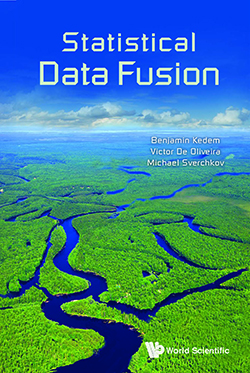News Story
Kedem receives NSF grant for semiparapetric regression with random covariates
ISR-affiliated Professor Ben Kedem (Math) has received a three-year, $100K NSF grant for An Approach to Semiparametric Regression with Random Covariates.
Given multiple multivariate data sources, each represented by an unknown multivariate distribution, the investigator proposes an approach to regression analysis based on relationships between semiparametric estimates of these multivariate distributions. Resulting from this are regression estimates expressed as estimates of the conditional expectation of a response given its covariates, for each source. The investigator plans to study the statistical properties of the regression estimates, associated diagnostic tools, the applicability and computability of the method using real data, and compare the method to multiple and kernel regression methods.
A basic statistical problem, referred to as regression, is to estimate a relationship between a dependent variable, called the response, and corresponding independent variables, called the predictors or covariates. Most often this is done using a single data source. In many cases, however, multiple data sources are available such as different groups of patients and a control group, data sets from many surveillance sensors, multiple surveillance sources from land, sea, and space, or multiple time records. The existence of multiple data sources motivates a generalization. The investigator will study a novel approach to regression based on multiple data sources, by combining or fusing the data from all sources as to increase the precision of all estimates, and by studying the joint statistical behavior of all sources. Potentially the approach may impact regression analysis in general, as well as forecasting of such time series as unemployment, commodity prices, and the course of a moving object given covariate information, whenever multiple data sources are available. The investigator plans to compare the approach with existing regression methods both theoretically and by data analysis using real data.
Published September 1, 2010










